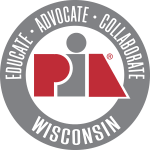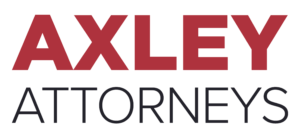Navigating Employment of Minors in Wisconsin: Understanding Legal & Insurance Implications


By: Judd A. Genda & Robert C. Procter | Axley Attorneys
Many business clients hire minors for summer work, whether for restaurants, amusement parks, or landscaping businesses. Hiring minors presents unique considerations. You and your clients must know the legal and insurance implications of hiring minors.
The U.S. Department of Labor and the State of Wisconsin have both established child labor laws to protect minors, including their health and safety. Wisconsin employers must comply with Wisconsin child labor laws, and most Wisconsin employers must also follow federal law. Amid increasing child labor law violations, whether to strengthen or roll back protections divides lawmakers across the country.
Minimum Ages and Exceptions: Minors must generally be 14 years old to work in most occupations. That said, exceptions exist for younger minors in some cases.
Work Permits: Subject to limited exceptions, most Wisconsin employers hiring minors must obtain a valid work permit for each minor before allowing them to work. A valid work permit will not allow a minor to do prohibited work and will not protect the employer if the minor does any prohibited work.
Prohibited Work: Wisconsin law prohibits minors from engaging in hazardous work, including activities considered dangerous or unsuitable for individuals under 18. Some common examples of prohibited employment for minors include working in adult bookstores, handling hazardous substances, operating machinery like power-driven woodworking machines, circular saws, or chainsaws, and working in facilities manufacturing or storing explosives. These are just a few examples. Employers must familiarize themselves with the complete list of prohibited employment outlined in the Wis. Admin. Code to ensure minor employees' compliance and safety.
Before hiring minor employees, clients must understand the ramifications of liability insurance.
Transportation: Generally, the party responsible for transportation is liable in the event of an accident. The employer is responsible for insurance coverage when providing transportation to and from work. An example may be where the minor stays at lodging supplied by the employer, and the employer transports the minor to and from a worksite. Even so, the employer is not responsible for insurance coverage related to transportation when the minor provides transportation to and from the worksite.
General liability: Depending on the insurance carrier, there may be restrictions on what tasks minors can perform. If a minor employee operates restricted equipment, the employer may face fines. Typically, EPL policies will not insure against violations of child labor laws.
Business Auto Insurance: Many insurance companies impose age restrictions, such as not allowing anyone under 21 to drive for the company.
Workers' Compensation: The age of an employee is irrelevant to the need to carry worker's compensation insurance. Worker's compensation insurance covers all employees, irrespective of age. There may be specific benefits for minors who sustain injuries on the job. In Wisconsin, the insurance company usually pays primary compensation, and the employer is primarily responsible for any extra compensation.
Double Compensation: Primary worker's compensation is due when a minor is injured. If an employer hires a minor for lawful (non-hazardous) work without a work permit or a youth apprenticeship education training agreement, it must match the primary compensation and remit this sum to the Work Injury Supplemental Benefit Fund (WISBF).
Treble Compensation: When a minor works in a prohibited (hazardous) occupation and the primary worker's compensation is due, the employer may be required to double the primary compensation and pay this amount to the WISBF. This is known as treble compensation.
Navigating the legal and insurance implications of hiring minors requires careful attention to detail and adherence to applicable laws and regulations. By addressing these concerns, you can assist your employer-insureds in protecting themselves and young workers in Wisconsin.
This information is provided for the convenience of PIAW members, but cannot be construed as legal advice. Members of PIAW may call (608) 200-4221, or email their questions to insurancehotline@axley.com, to work with an attorney and receive legal information specific to your situation.

